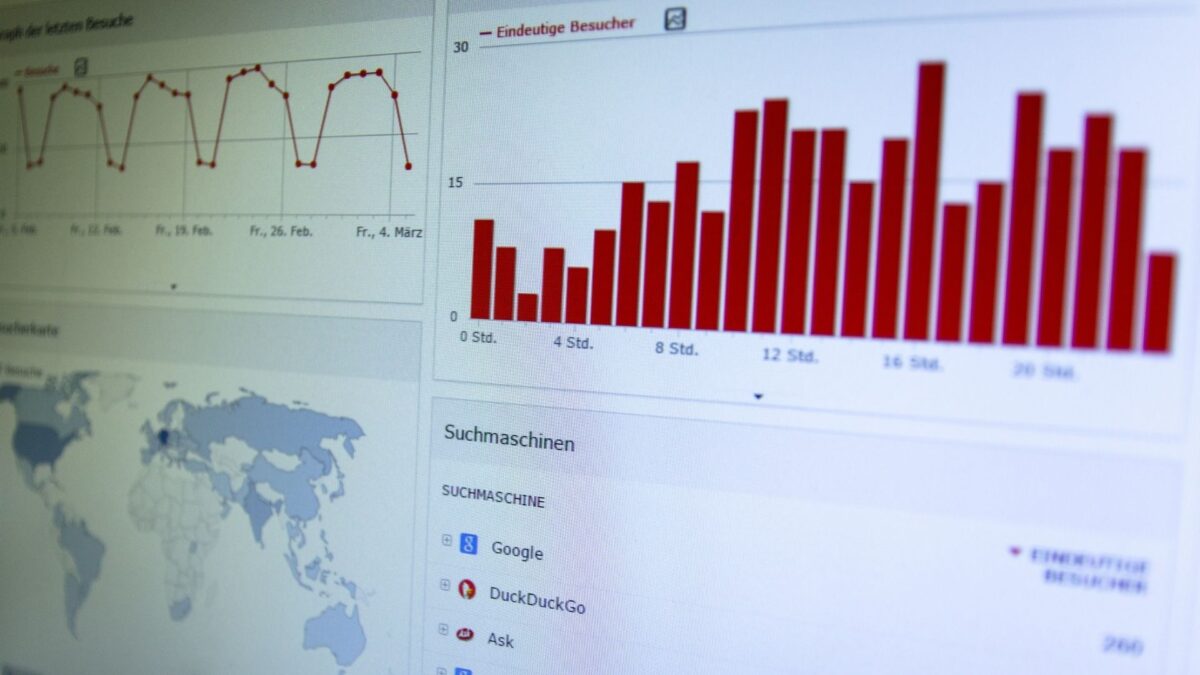Importance of data
Data is more than just a trend. Gathering and analyzing data has gone from being a way to improve your business to an absolute necessity for growth and success.
Data is a key part of Digital marketing (social media marketing, paid search, SEO, email, remarketing, display banners, etc…) The more you have, the better it is for your ability to reach out and engage with potential customers or clients.
In this article, we will explore why data is so crucial and how you can get your hands on it in order to make your marketing efforts more successful.
Note: Data v Information
Data is a set of raw facts. Information is data that has been processed and presented so it can be interpreted by humans or in other words information is insights analysed through the collected data.
Data is often composed of raw numbers and facts while information is often presented visually like graphs, charts, tables, or diagrams. Information should be presented in any way that helps people to understand it. Information is useful because it’s processed or organized in a way that tells people something specific, something meaningful.
Companies are using data to gain insights into their business and operations, understand customer behaviour, optimise business processes, gain competitive advantage, and more. Data is becoming more valuable for businesses in order to attain a competitive advantage.
The Only Report You Need In Data Studio to Run a Successful Business
How Data Can Help You Stand Out
Data is powerful and there’s more of it than ever before. If you want to be successful, you need to leverage this data as part of your marketing strategy. Data can make all the difference in knowing who your customer is and what they want. Companies like Amazon and Netflix use this knowledge to personalize their products and make the shopping or watching experience more relevant for people.
Talking about Amazon, this company gathers information from every single website visitor and every single action they perform on the Amazon websites. Apart from what you buy the company also monitors what you look at, how long you stay on a page, your reviews and even your shipping address so they can try to guess your income level based on where you live.
With a “360-degree view” of you as a human being (employed female between 30 and 45, living in a rented house in London with an income of over £40,000 who enjoys foreign films, for example) Amazon can take a surprisingly good guess at what you want to buy offering you products that people with similar profiles have purchased.

Why Use Data to Make Better Business Decisions?
One of the most important reasons to use data for your business decisions is that it can help make better predictions. For example, if your product’s sales are down and there is a change in customer behaviour, you might be able to figure out why and make some changes before it starts negatively impacting your business.
Data analysis can also identify opportunities that you never knew existed. For example, you might have been selling your products too cheaply because the data showed that consumers were willing to pay more for them.
Data in marketing is the new currency. The more data you have, the more precisely you can identify your target market and provide them with what they want when they want it. If you’re not leveraging your data to find out how people interact with your business, you’re doing yourself a huge disservice.
The Importance of Data in Your Marketing Strategy
Data is an incredibly powerful tool that can be inexpensive and accessible. If you want to truly improve your business profitability, you need to consider this technology as part of your overall marketing strategy. A company’s data-driven marketing efforts is all about automating the creation of content based on certain criteria in their database without any human intervention.
How Important is it to Measure Data Quality?
Data quality is an often-overlooked metric, but it’s just as important as assessing your Return on investment (ROI) or your Click-through rate (CTR). Without data quality, you’re not getting the full story of what’s happening on your site. If you’re not measuring data quality, you can’t guarantee that incoming data is answering questions or providing insights.
Data quality meets six dimensions:
- accuracy
- completeness
- consistency
- timeliness
- validity
- uniqueness
Benefits of Building Your Own Customer Database
If you’re looking to build an incredibly successful business, then investing in creating your own customer database is the first thing you should do. It allows you to reach out to your customers on a more personal level, build stronger relationships with them and give them every reason to keep coming back
The customer database is essential for any company because it can boost sales, monitor customer behaviour, and generate reports. It is also a good way to maintain information about customers. If you are willing to invest the time and effort into building your own database, you will reap all of the benefits.
Building your own database of customers can provide you with the opportunity to communicate with them more easily. You’ll have access to their personal information which can make it easier to find out what they want. You will also be able to automate the features of your business by updating customer info, subscriptions, payments, etc.
How to collect data?
- Online Tracking
- Interviews, questionnaires and surveys
- Social media monitoring
- Transactional data tracking
- Documents and records
- Focus groups
- Oral histories
- In-Store Traffic Monitoring
Conclusion
There is no way for any institution to survive in today’s digital era without the help of data. This is why it is important for all businesses to make sure that they are able to collect, store, and analyse data. Data can be found almost anywhere, but you need to know how to spot it first.
Data is an invaluable resource but most companies that don’t understand the importance of data for business are not utilizing it to its full potential. The more data we have, the better decisions we can make and it’s time that we start investing heavily in data collection and storage!


Leave a Reply